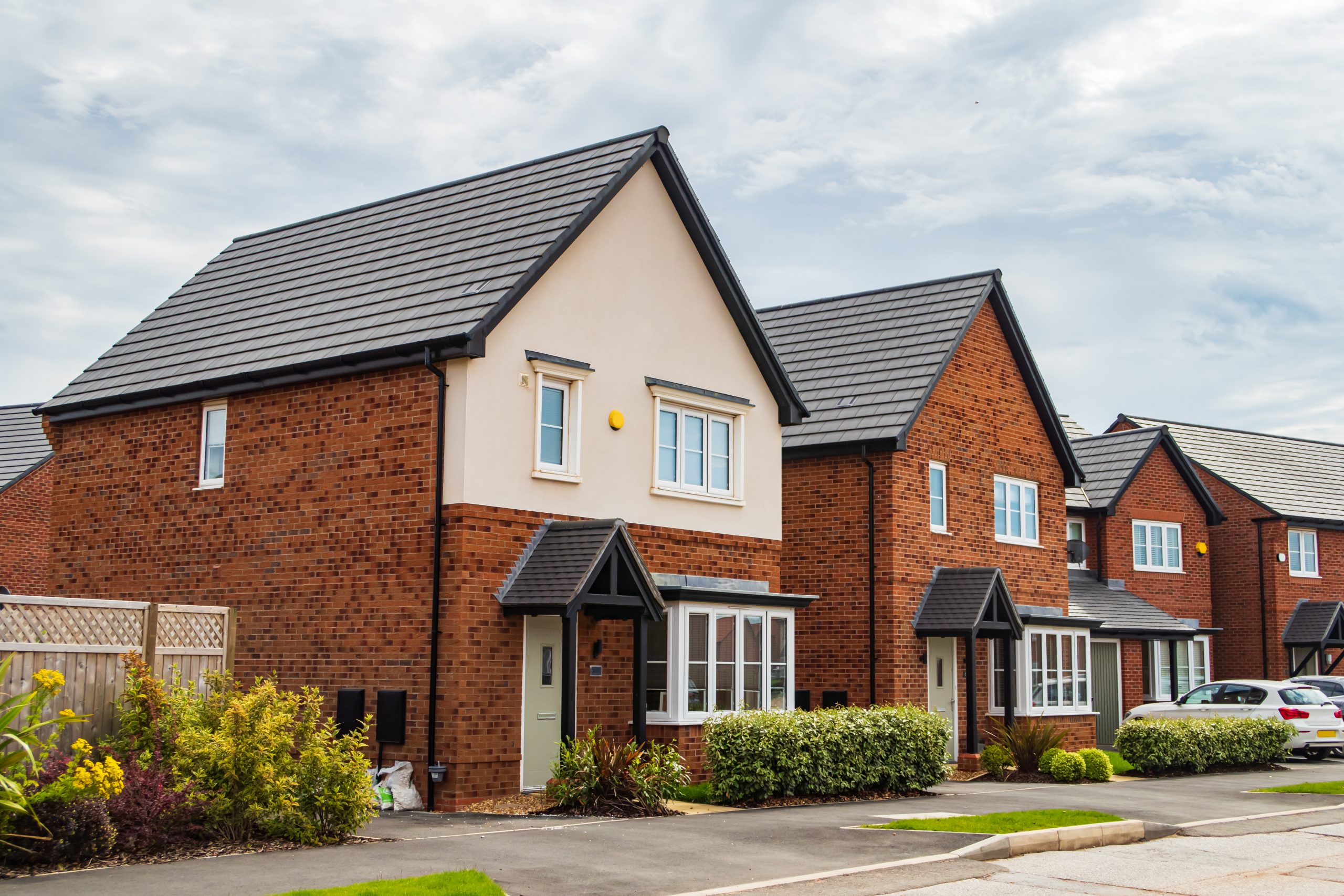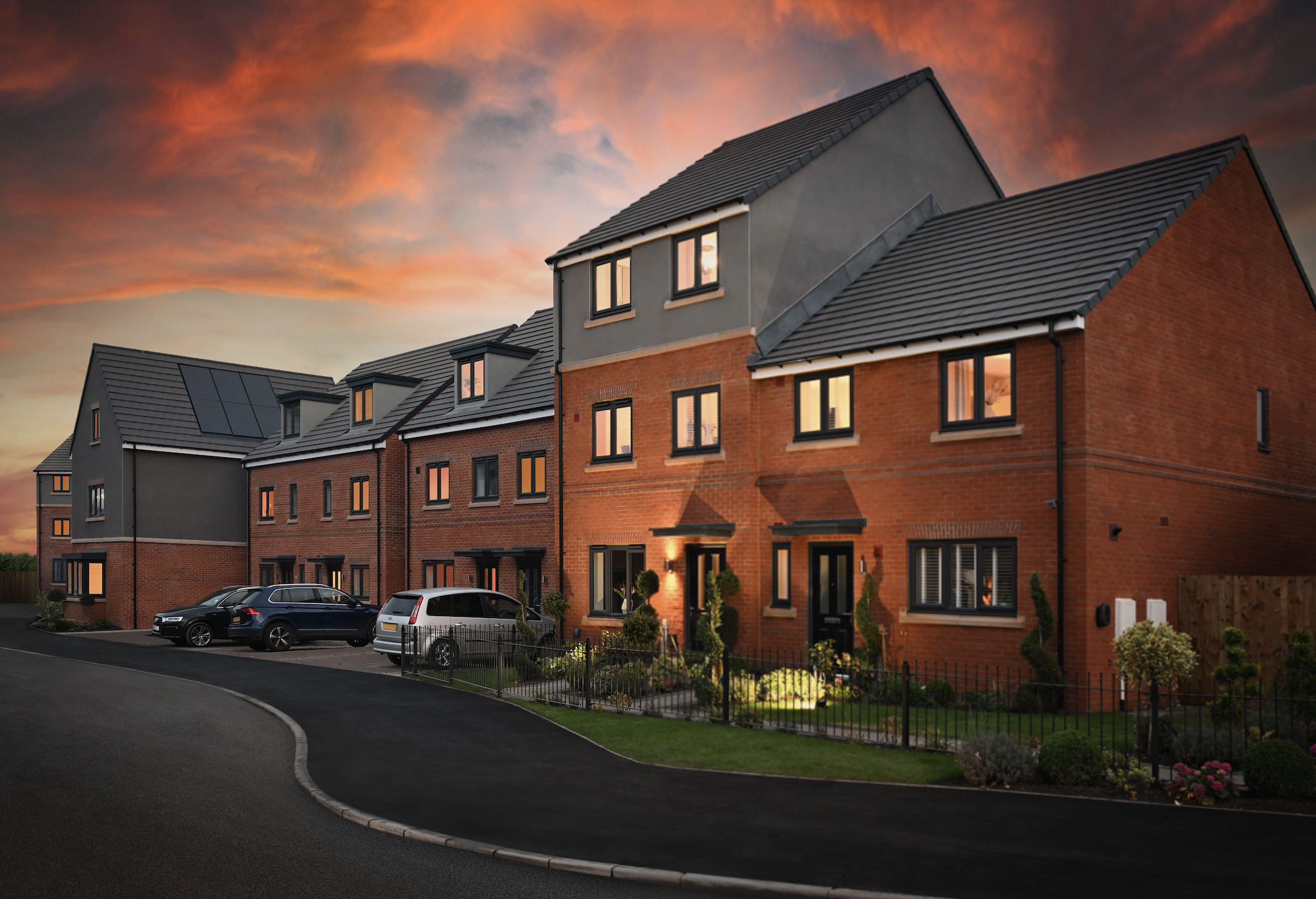Decarbonising The Future of UK Housing

The UK is firmly committed to achieving net-zero carbon emissions by 2050, aligning with the global call for decisive action to mitigate climate change. As one of the leading sources of greenhouse gas emissions, the housing sector is under pressure to transform.
The Role of Networked Ground Source Heat Pumps and Community Heat Hubs
From government mandates to voluntary industry initiatives, decarbonising the built environment is an urgent priority, particularly as new homes are constructed to meet evolving standards. In the shift towards a sustainable future, low-carbon heating solutions like Networked Ground Source Heat Pumps and Community Heat Hubs offer practical and effective answers for both housebuilders and residents.
Decarbonisation and Sustainability in the UK Housing Sector
The UK’s path to decarbonisation is set against an ambitious backdrop, with the Future Homes Standard outlining specific steps for reducing carbon emissions in new residential developments. From 2025, new homes will be required to meet stricter energy efficiency and low-carbon standards, ensuring they are equipped for a zero-emissions future.
This shift means that housebuilders and developers must adopt new technologies to achieve high standards of sustainability. Decarbonising housing involves more than energy efficiency alone; it requires a complete re-evaluation of heating, cooling, and powering homes in ways that significantly reduce carbon footprints.
Heat, traditionally reliant on fossil fuels, poses one of the biggest challenges. The shift away from natural gas and other high-emission sources towards renewable, low-carbon options is a cornerstone of decarbonising residential developments. This shift is reinforced by recent policy developments, industry commitments, and growing customer demand for sustainable living solutions. Heat pumps, which extract heat from the ground, air, or water to heat homes, offer a viable low-carbon alternative to traditional gas boilers, contributing significantly to the UK’s long-term sustainability goals.
GTC’s Networked Ground Source Heat Pumps: A Low-Carbon Solution for Housebuilders
At GTC, we have introduced Networked Ground Source Heat Pumps as part of a bundled multi-utility solution designed specifically for new housing developments in the UK. Networked Ground Source Heat Pumps work by extracting naturally stored thermal energy from the ground, which is then amplified by an electric pump to provide consistent, energy-efficient heating.
By eliminating the reliance on carbon-intensive energy sources, Networked Ground Source Heat Pumps can reduce household carbon emissions by up to 80% compared to conventional heating systems. This means fewer emissions at the source and a significant reduction in overall environmental impact, and compliance with the Future Homes Standard.
For housebuilders, Networked Ground Source Heat Pumps offer both environmental and economic advantages in addition to reducing reliance on the grid. Networked Ground Source Heat Pumps represent a low-maintenance, future-proof investment that can enhance the long-term value of new developments.
The added benefit of GTC’s Networked Ground Source Heat Pumps is their integration with smart thermostat controllers from our sister company Passiv UK, allowing residents to optimise energy usage, track their energy consumption, and adjust, contributing to a more sustainable lifestyle and achieve deeper financial savings.
Community Heat Hubs: Centralising Low-Carbon Heating
In addition to Networked Ground Source Heat Pumps, GTC’s Community Heat Hubs provide a scalable solution for low-carbon heating across multi-unit developments. By centralising heat production, Community Heat Hubs distribute low-carbon heat to multiple homes from a single source, making the solution efficient and highly adaptable.
Community Heat Hubs are also suited to social housing projects or urban developments, where individual heat pumps may be impractical. They provide a sustainable solution that enable developers to comply with regulatory standards while enhancing the value of their projects. Additionally, Community Heat Hubs are an attractive option for housing associations and local councils aiming to support affordable, sustainable housing.
Like Networked Ground Source Heat Pumps, Community Heat Hubs can be connected to smart controllers, allowing simplicity of use once programmed, and flexible heat distribution, providing residents with data on energy consumption, which promotes more sustainable habits.
Benefits for Residents and Long-Term Sustainability
For residents, GTC’s low-carbon heating solutions deliver significant benefits. Beyond the reduced carbon footprint, Networked Ground Source Heat Pumps and Community Heat Hubs offer stable and energy-efficient heating systems that provide comfort without the fluctuations in cost often associated with gas or electricity.
The reduction in environmental impact is further complemented by improved indoor air quality and a quiet, reliable heating system that enhances overall well-being. As residents become more conscious of their environmental impact, the ability to track and control energy usage offers them a practical way to contribute to sustainability.
A Transformative Shift Towards Low-Carbon Living
GTC’s commitment to delivering sustainable heat solutions such as Networked Ground Source Heat Pumps and Community Heat Hubs underscores our mission to support the UK’s decarbonisation efforts.
By providing housebuilders and developers with practical, high-efficiency solutions, we enable the creation of homes that not only meet regulatory standards but also provide lasting benefits for the environment and residents alike.
Through the adoption of Networked Ground Source Heat Pumps and Community Heat Hubs, the UK housing sector can make substantial progress in reducing carbon emissions, enhancing sustainability, and achieving the goals set out in the Future Homes Standard.

